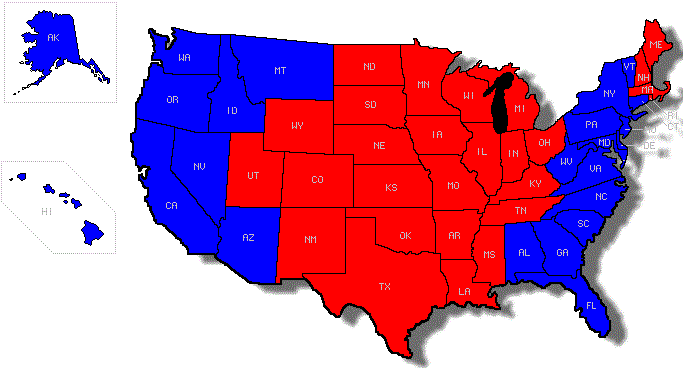The Judiciary is a branch of the government, but since you don't campaign for the office, most people don't pay attention. This despite the fact that the decisions from judges have such an impact on everyone (Citizens United anyone).
Needless to say we like to think of the judges as impartial, but let's face it, there is a difference between Democratic-appointed judges and Republican-appointed judges.
From the Baltimore Sun (emphasis mine):
The federal appellate court that covers Maryland has for years been considered one of the more right-leaning in the nation, finding that women can be banned from a military institute, that the FDA can't regulate tobacco and that confessions count even when suspects haven't been read their rights, among other conservative opinions.Which Appeals Courts have Democratic majorities and which have Republican majorities?
But the 4th Circuit U.S. Court of Appeals now appears to have taken a left turn.
Last week, the court sided with a criminal suspect over police for the fourth time since March on a Fourth Amendment case claiming that improper searches violated the defendant's rights.
In September, the court threw out constitutional challenges to President Barack Obama's health care overhaul efforts, finding that a penalty for not having health insurance amounts to a tax that can't be challenged until it's paid — and that part of the law doesn't take effect for years.
And in July, the court ruled in a case over the separation of church and state that only generic, "nonsectarian" prayers are appropriate for government meetings.
The decisions are the first evidence of an altered philosophy within the 4th Circuit, which oversees federal appeals cases from Maryland, Virginia, West Virginia and the Carolinas, legal analysts said. The shift follows a half-dozen appointments by Obama to a bench that previously had a Republican majority.
"There's been a marked change," said Ilya Shapiro, a senior fellow at the Cato Institute, a libertarian think tank in Washington. "Historically, this has been one of the most, if not the most, conservative circuits. Now it's almost one of the most liberal."
When Obama took office, the 4th Circuit, based in Richmond, Va., had 11 sitting judges — six Republican appointees and five Democratic picks — and four vacancies.
The spots were left open because the Democratic-controlled U.S. Senate of 2007 and 2008 refused to approve President George W. Bush's 4th Circuit appointments, including Rod J. Rosenstein, who had been named Maryland's U.S. attorney a few years earlier based on a Bush recommendation.
The inaction on judicial nominations paved the way for Obama to make an impact with his choices, which have focused on diversifying federal courts based on race, gender and sexual orientation. Since he took office, two more vacancies opened on the 4th Circuit, allowing him to nominate six people in total. Five have been approved: a woman, two black men, a Latino, and a white man.
Democratic majority: 2nd, 3rd, 4th, 9th, 11th, Federal
Republican majority: 1st, 5th, 6th, 7th, 8th, 10th, D.C.
If you mapped it out...


No comments:
Post a Comment